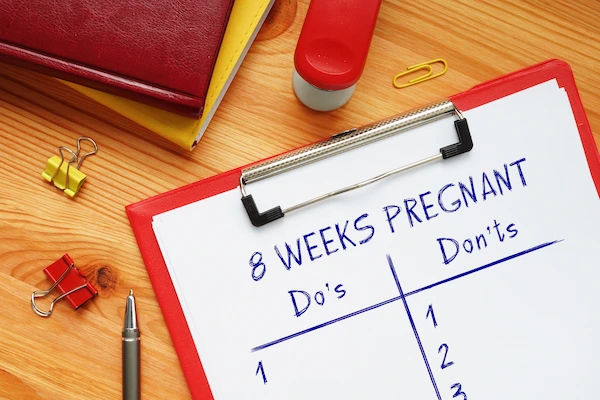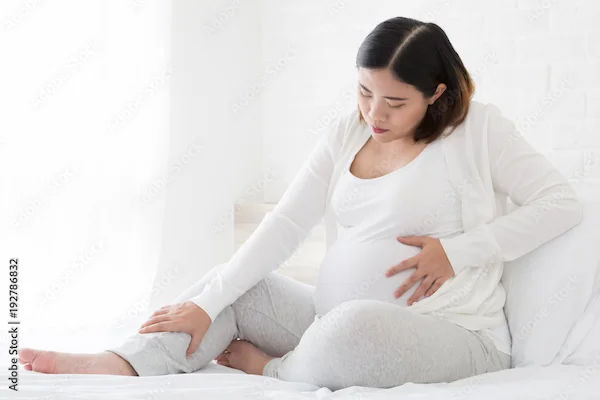How Much Tea Is Safe During Pregnancy? A Complete Guide
Learn how much tea is safe during pregnancy, the types to avoid, and healthier alternatives. Get a complete guide to protect your and your baby’s health.


Introduction
For many, a warm cup of tea is a daily ritual, a moment of comfort and calm. But when you're pregnant, every sip comes with a new question: "Is this safe for my baby?" Navigating the world of pregnancy nutrition can be confusing, and your beloved tea is no exception. The central concern isn't the tea itself, but the caffeine it contains. This guide will cut through the confusion and provide clear, evidence-based answers on how much tea you can have during pregnancy. We'll break down the caffeine content of different teas, highlight the hidden dangers of some herbal varieties, and offer practical tips to help you enjoy your cuppa safely throughout your pregnancy journey. Let's steep into the details.
Understanding the Primary Concern: Caffeine in Pregnancy
Tea and other beverages often contain caffeine, which raises concerns during pregnancy.
Why is Caffeine Intake Limited During Pregnancy?
Caffeine is a stimulant that crosses the placenta effortlessly. While your mature liver can process caffeine, your developing baby's liver is not equipped to metabolize it effectively. This means caffeine can accumulate in the fetal system. High levels of caffeine have been associated with an increased risk of restricted fetal growth, low birth weight, and in extreme cases, miscarriage. It can also act as a diuretic, which isn't ideal for maintaining healthy hydration levels during pregnancy. The key is not elimination but strict moderation based on well-established medical guidelines.
The Official Recommendation: The 200mg Caffeine Rule
Major health organizations worldwide, including the American College of Obstetricians and Gynecologists (ACOG) and the World Health Organization (WHO), are unified on this front: pregnant women should limit their caffeine intake to less than 200 milligrams (mg) per day. This is a crucial ceiling to remember, as it encompasses all sources of caffeine, not just tea, but also coffee, soda, chocolate, and certain medications.
Consult an Obstetrician and Gynaecologist for the best advice
A Cup-by-Cup Breakdown: Caffeine in Different Tea Types
Not all teas are created equal. Their caffeine content varies dramatically based on the type of tea leaf, how it's processed, and how long it's steeped.
Black Tea: The High Caffeine Contender
Black tea is fully oxidized, which gives it a robust flavour and the highest caffeine content among true teas. An average 8-oz cup of black tea contains approximately 40-70 mg of caffeine. This means you can likely safely enjoy 2-3 cups per day, but you must be mindful of your total caffeine intake from other sources. A strong English Breakfast or Assam tea will be on the higher end of this range.
Green Tea: A Milder, Antioxidant-Rich Option
Green tea is unoxidized and is often praised for its antioxidants, like EGCG. It generally contains less caffeine than black tea, with an average cup providing 20-45 mg. This allows for a bit more flexibility. However, a common misconception is that you can drink unlimited green tea. Staying within the 200mg limit is still paramount. If you're a green tea lover, 3-4 cups might be your safe maximum.
Oolong Tea: Somewhere in the Middle
Oolong tea is partially oxidized, placing its caffeine content squarely between black and green tea. You can expect roughly 30-50 mg per cup. Its varied processing means the caffeine level can fluctuate, so it's wise to err on the side of caution and assume it's on the higher end when counting your daily intake.
White Tea: The Lowest in Caffeine
Made from young tea leaves and buds, white tea is the least processed and typically has the lowest caffeine content, at about 15-30 mg per cup. This makes it one of the safest caffeinated choices during pregnancy, allowing for more cups within the daily limit. Its delicate, sweet flavour is also less likely to be paired with large amounts of sugar.
The World of Herbal Teas: Not Always a Safe Haven
Many women switch to herbal tea during pregnancy, believing it to be a completely safe alternative. The term "herbal" can be misleading, as these are not teas from the Camellia sinensis plant but rather infusions of herbs, spices, and flowers. Their safety profile is not universally guaranteed.
Generally Recognized as Safe (GRAS) Herbal Teas
Some herbal teas are considered safe in moderation (1-2 cups per day) because they have a long history of use and are made from common food ingredients. These include:
- Ginger tea: Often hailed as a remedy for morning sickness.
- Peppermint tea: Can help soothe an upset stomach.
- Raspberry leaf tea: Note: This is a special case. It is traditionally used in the third trimester to tone the uterine muscles, but it is not recommended during the first trimester due to a lack of robust safety data. Always consult your doctor before using it.
Herbal Teas to Avoid Entirely During Pregnancy
This is the most critical section. Some herbs have strong pharmacological effects and can act as uterine stimulants or contain compounds potentially harmful to fetal development. Avoid teas containing these herbs:
- Pennyroyal
- Black cohosh
- Blue cohosh
- Dong Quai
- Ephedra (ma huang)
- Licorice root (in large amounts)
- Saw Palmetto
- Yarrow
Always read the ingredient list on herbal tea blends carefully. A "relaxation" or "detox" blend might contain these unsafe ingredients. If you are unsure about any ingredient in a tea, it is best to avoid it and consult a doctor online with Apollo24|7 for personalized advice.
Beyond Caffeine: Other Considerations for Drinking Tea While Pregnant
Other factors to consider when drinking tea during pregnancy beyond caffeine:
Iron Absorption and Tannins
Tea contains tannins (polyphenols) that can bind to non-heme iron (the iron found in plant foods like spinach and beans) in the digestive tract, inhibiting its absorption. Iron is crucial during pregnancy to prevent anaemia. To mitigate this, avoid drinking tea with your meals. Try to have your cup of tea between meals, at least one hour before or after eating.
The Potential Benefits of Antioxidants
On the flip side, true teas (green, black, white, oolong) are rich in antioxidants, which can help combat oxidative stress and support overall health. This isn't a reason to exceed the caffeine limit, but it's a positive note for those enjoying tea in moderation.
Practical Tips for Enjoying Tea Safely
Tea can still be part of your routine during pregnancy with the right precautions. Here are some practical tips for enjoying tea safely:
How to Measure Your Daily Intake
Don't guess. If you're a frequent tea drinker, keep a rough mental tally. If you have one strong black tea (60mg) for breakfast and a green tea (30mg) in the afternoon, you're at 90mg for the day, leaving room for a piece of chocolate or a soda.
The Art of Decaffeinating Tea at Home
You can reduce the caffeine in your cup at home. Caffeine is highly water-soluble. To make a partially decaffeinated cup:
1. Steep your tea bag or leaves in hot water for 30 seconds.
2. Discard this initial liquid.
3. Steep the same tea bag again in fresh hot water for the full recommended time.
This method can remove a significant portion of the caffeine while retaining much of the flavor.
Optimal Timing: When to Drink Your Cup of Tea
As mentioned, drink tea between meals to protect your iron absorption. Many women also find a cup of ginger or peppermint tea first thing in the morning helps manage nausea.
Conclusion
Pregnancy doesn't have to mean giving up the simple pleasure of a warm cup of tea. By understanding the caffeine limits and being a savvy consumer, especially with herbal varieties, you can confidently include tea in your prenatal diet. The golden rule is moderation and awareness. Keep your total intake under 200mg of caffeine per day, choose your blends wisely, and time your tea breaks away from meals. Most importantly, maintain an open dialogue with your healthcare provider about your dietary choices. They are your best resource for ensuring both you and your baby stay healthy and happy throughout this incredible journey. So go ahead, steep your favorite safe blend, and enjoy a well-deserved moment of relaxation.
Consult an Obstetrician and Gynaecologist for the best advice
Consult an Obstetrician and Gynaecologist for the best advice

Dr. Mona Yadav
Obstetrician and Gynaecologist
19 Years • MBBS, MD (Obstetrics & Gynaecology)
Dombivli
Nulife multispeciality, Dombivli

Dr. Parul Sharma
Obstetrician and Gynaecologist
8 Years • MBBS, MS (Obstetrics & Gynaecology)
New Delhi
THE DOCTORS NESST, New Delhi

Dr. Debajyoti Goswami
Obstetrician and Gynaecologist
10 Years • MBBS,D.G.O(DNB),Adv. Infertility Tech.(AIIMS),Fellowship in Diabetes(U.K),Comprehensive Abortion Care(Govt. Of W.B), Certificate in Clinical Embryology(AIIMS, BHUBANESWAR)
Bankura
D.G Clinic, Bankura
(25+ Patients)
Dr. K Anusha
Obstetrician and Gynaecologist
4 Years • MBBS, DGO
Yemmiganur
SRINIVASAA HOSPITAL, Yemmiganur

Dr. Asha Rani Singh
Obstetrician and Gynaecologist
24 Years • MBBS DGO
Delhi
Dr Asha Rani Singh Clinic, Delhi
Consult an Obstetrician and Gynaecologist for the best advice

Dr. Mona Yadav
Obstetrician and Gynaecologist
19 Years • MBBS, MD (Obstetrics & Gynaecology)
Dombivli
Nulife multispeciality, Dombivli

Dr. Parul Sharma
Obstetrician and Gynaecologist
8 Years • MBBS, MS (Obstetrics & Gynaecology)
New Delhi
THE DOCTORS NESST, New Delhi

Dr. Debajyoti Goswami
Obstetrician and Gynaecologist
10 Years • MBBS,D.G.O(DNB),Adv. Infertility Tech.(AIIMS),Fellowship in Diabetes(U.K),Comprehensive Abortion Care(Govt. Of W.B), Certificate in Clinical Embryology(AIIMS, BHUBANESWAR)
Bankura
D.G Clinic, Bankura
(25+ Patients)
Dr. K Anusha
Obstetrician and Gynaecologist
4 Years • MBBS, DGO
Yemmiganur
SRINIVASAA HOSPITAL, Yemmiganur

Dr. Asha Rani Singh
Obstetrician and Gynaecologist
24 Years • MBBS DGO
Delhi
Dr Asha Rani Singh Clinic, Delhi
More articles from pregnancy
Frequently Asked Questions
Can I drink decaf tea every day during pregnancy?
Yes, decaffeinated tea is generally considered a safe option as most of the caffeine has been removed. However, check the label, as 'decaf' is not 100% caffeine-free; it usually contains 2-5 mg per cup.
Is it true that raspberry leaf tea can induce labor?
Red raspberry leaf tea is traditionally used in the third trimester to tone the uterine muscles, which may help prepare for labor. It is not typically used to induce labor and is not recommended in the first trimester. Always consult your doctor before using it.
How does tea affect early pregnancy?
The first trimester is a critical period of development. Adhering to the 200mg caffeine limit is especially important during this time to minimize any potential risks to the developing fetus.
Can I have chai tea while pregnant?
It depends. Masala chai is typically made with black tea, so it contains caffeine. You need to count it toward your daily limit. Also, check for any herbal ingredients in the spice blend that might not be pregnancy-safe.
What is the best tea for nausea during pregnancy?
Ginger tea is widely recognized as one of the most effective and safe natural remedies for alleviating morning sickness. Peppermint tea is another popular option for settling the stomach.


.webp)

